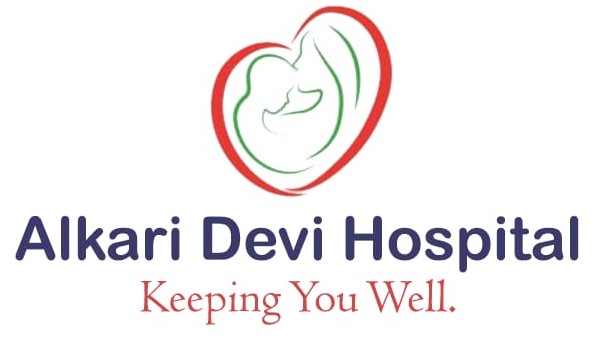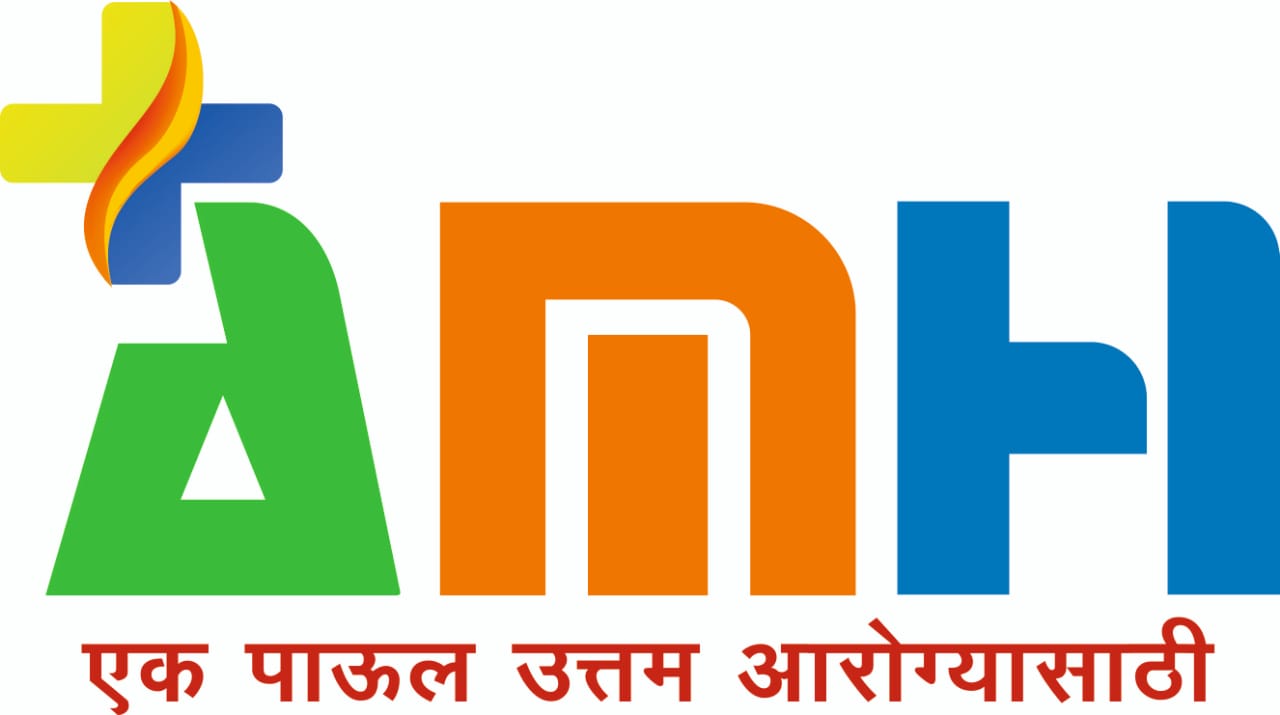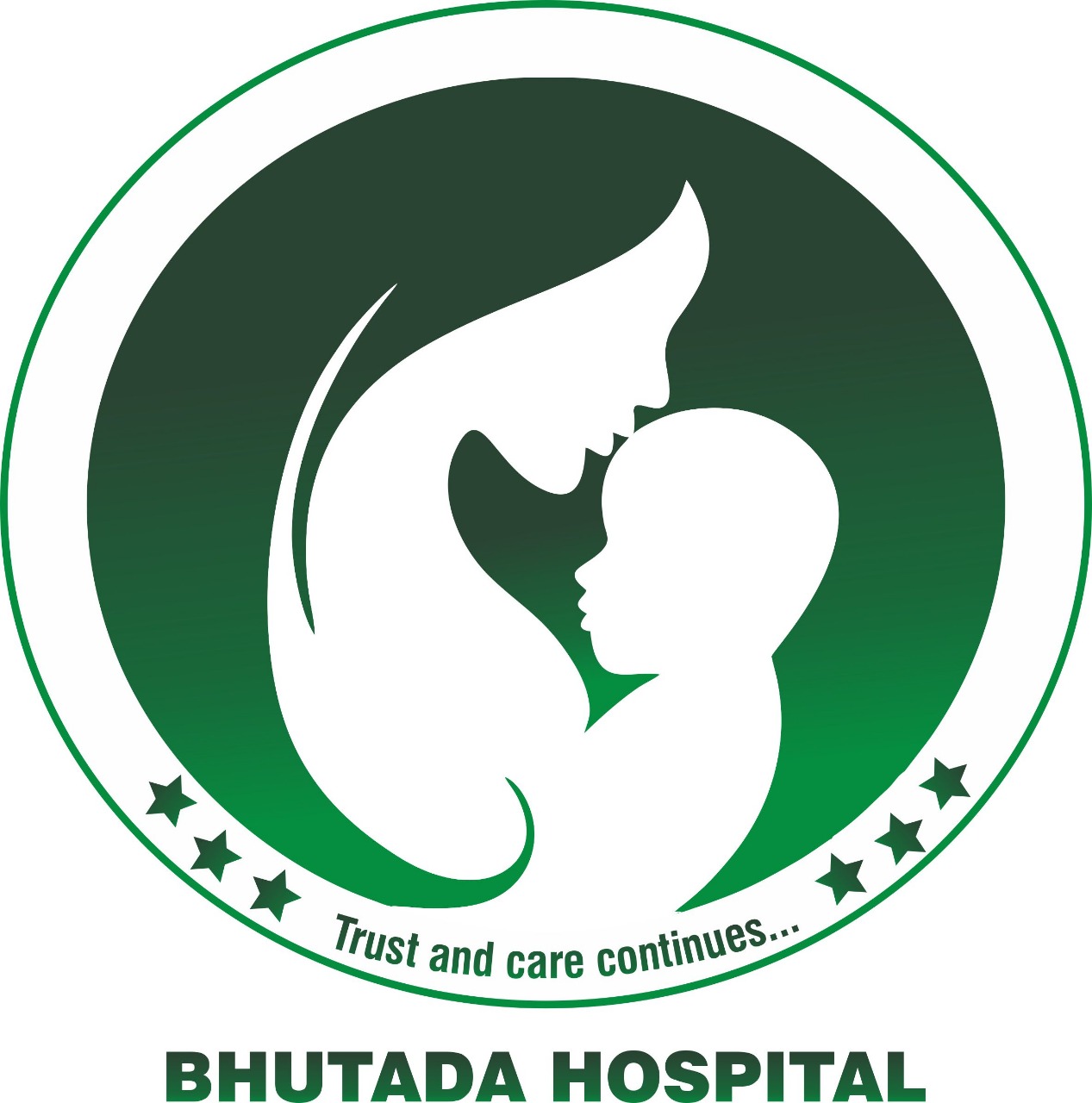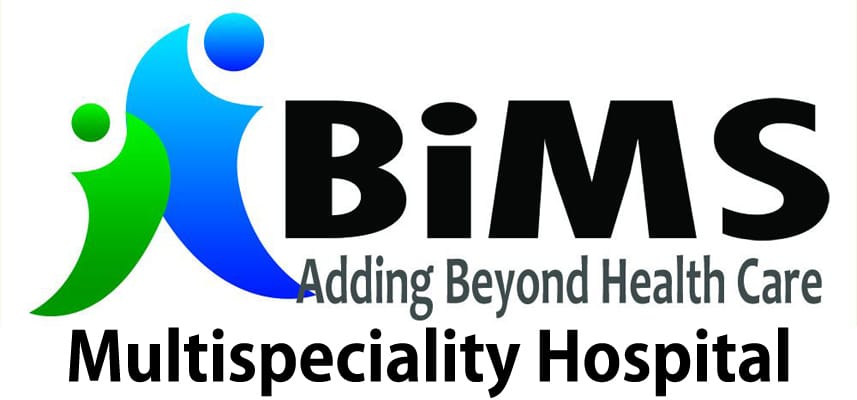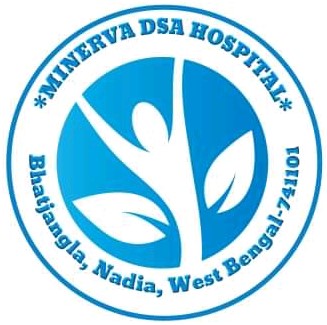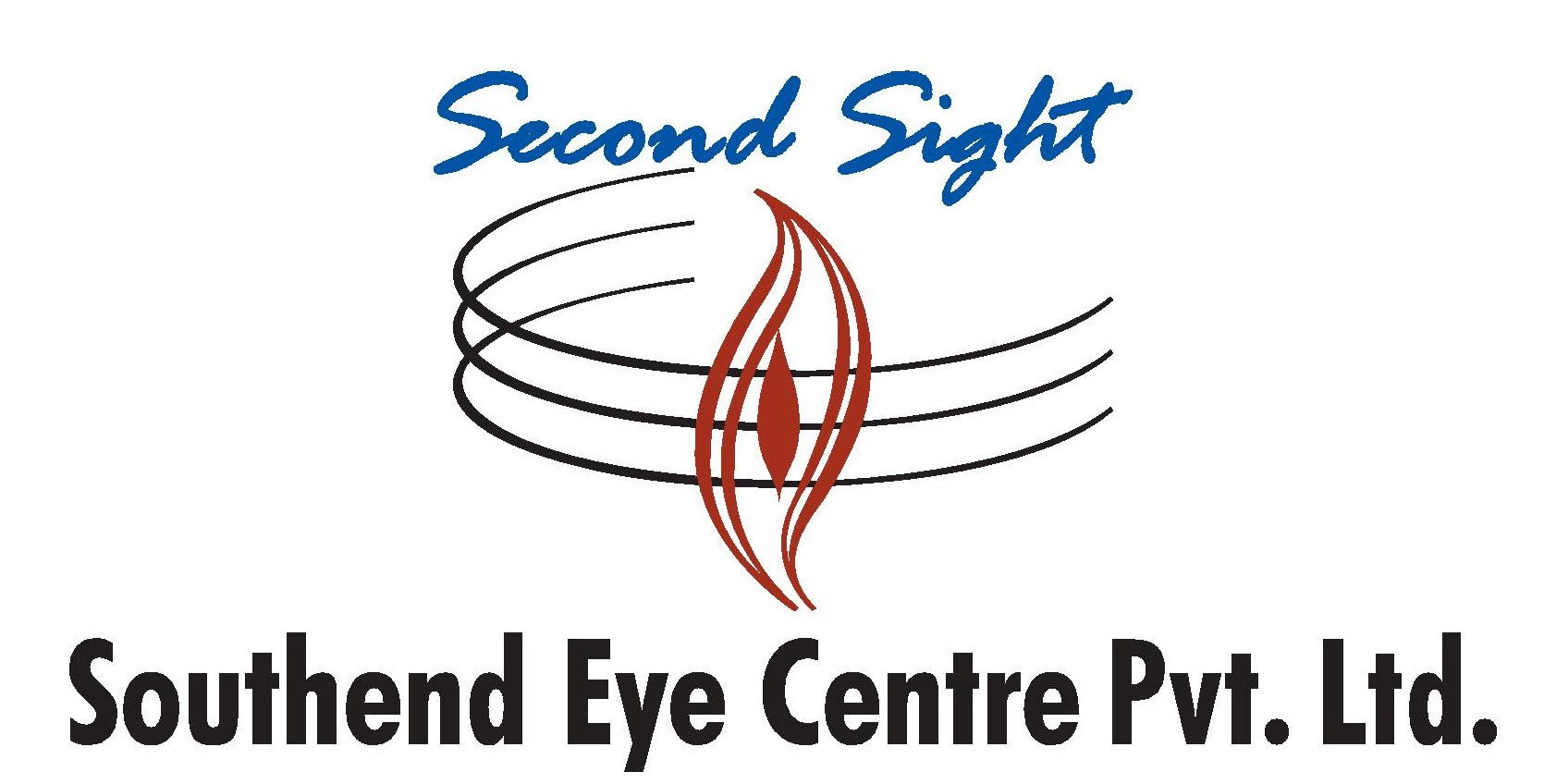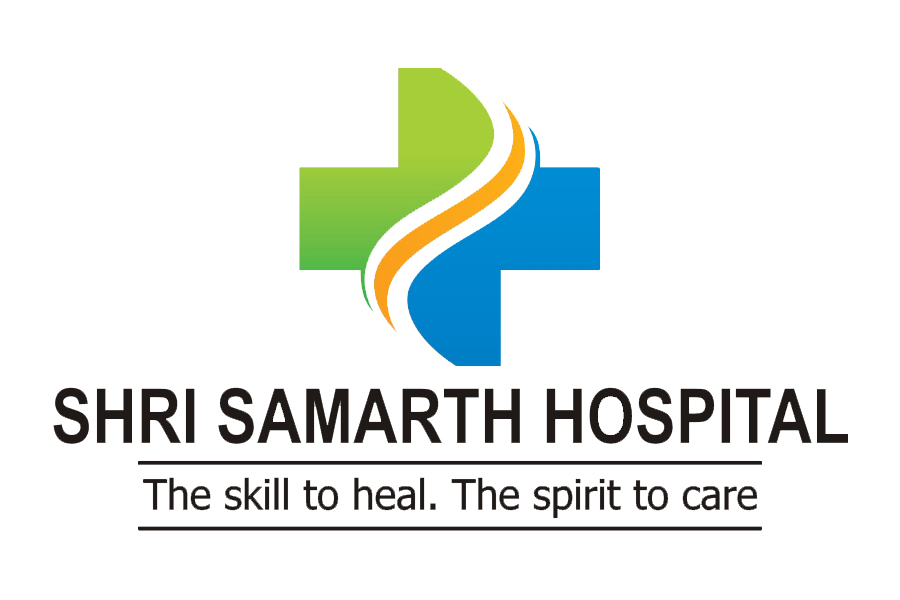-
Call Us
(+91) 8274830152 / 7003309520
-
Email Us
info@roysquare.com
Call Us
(+91) 8274830152 / 7003309520
Email Us
info@roysquare.com
As the healthcare industry continues to evolve, hospitals and medical facilities are constantly searching for new ways to improve patient care while managing resources effectively. This is where Hospital Management System (HMS) software comes in handy. HMS software is designed to streamline hospital operations and improve overall efficiency, enabling healthcare providers to focus on what matters most – providing quality patient care. Roy Square Enterprise has developed/designed a Healthcare Management System Software which includes Hospital Management System Software; Laboratory Management System Software; Clinic Management System Software; Polyclinic Management System Software; Diagnostic Management System Software; Pharmacy Management System Software; Ophthalmology Management System.
Hospital Management System Software provides a unique solution for managing information from multiple medical
facilities, which can easily manage Track Patients, Schedule Appointments,
 Manage Administrative Tasks, Raise Bill,
Track Payments and Collections, Set Taxes, Multiple user access and much more in it.
Our hospital management system software is a computer program designed to help hospitals manage their operations
more efficiently. The software typically includes features such as patient registration, appointment scheduling,
medical records management, billing and invoicing, inventory management, and reporting.
Manage Administrative Tasks, Raise Bill,
Track Payments and Collections, Set Taxes, Multiple user access and much more in it.
Our hospital management system software is a computer program designed to help hospitals manage their operations
more efficiently. The software typically includes features such as patient registration, appointment scheduling,
medical records management, billing and invoicing, inventory management, and reporting.
Here are some of the key features of our hospital management system software:
The software allows hospitals to register patients and collect their personal and medical details, including contact information, medical history, and insurance information.
ii. Appointment Scheduling: This feature enables patients to book appointments online or over the phone, and the software can help manage the appointment schedule for doctors and other staff.
iii. Medical Records Management: The software allows hospitals to store and manage patient medical records, including diagnoses, treatments, and test results.
iv. Billing and Invoicing: The system can generate invoices and process payments, including online payments, for the services provided.
v. Inventory Management: The software allows hospitals to track inventory levels, manage stock orders, and monitor expiration dates of medicines and supplies.
vi. Reporting: The software can generate various reports, such as patient volumes, appointment cancellations, and revenue reports, which help hospitals track their performance and make informed business decisions.
Hospital management system software can improve the efficiency and accuracy of hospital operations, reduce errors and enhance patient safety. It can also help hospitals manage their finances and inventory more effectively, reduce paperwork, and improve profitability. The software is widely used in hospitals, including those that offer primary care, specialty care, and inpatient services.
Laboratory Management System Software also known as Laboratory Information Management System which helps in
efficient lab management by managing patient reports, commercial records and so on. In Laboratory Software
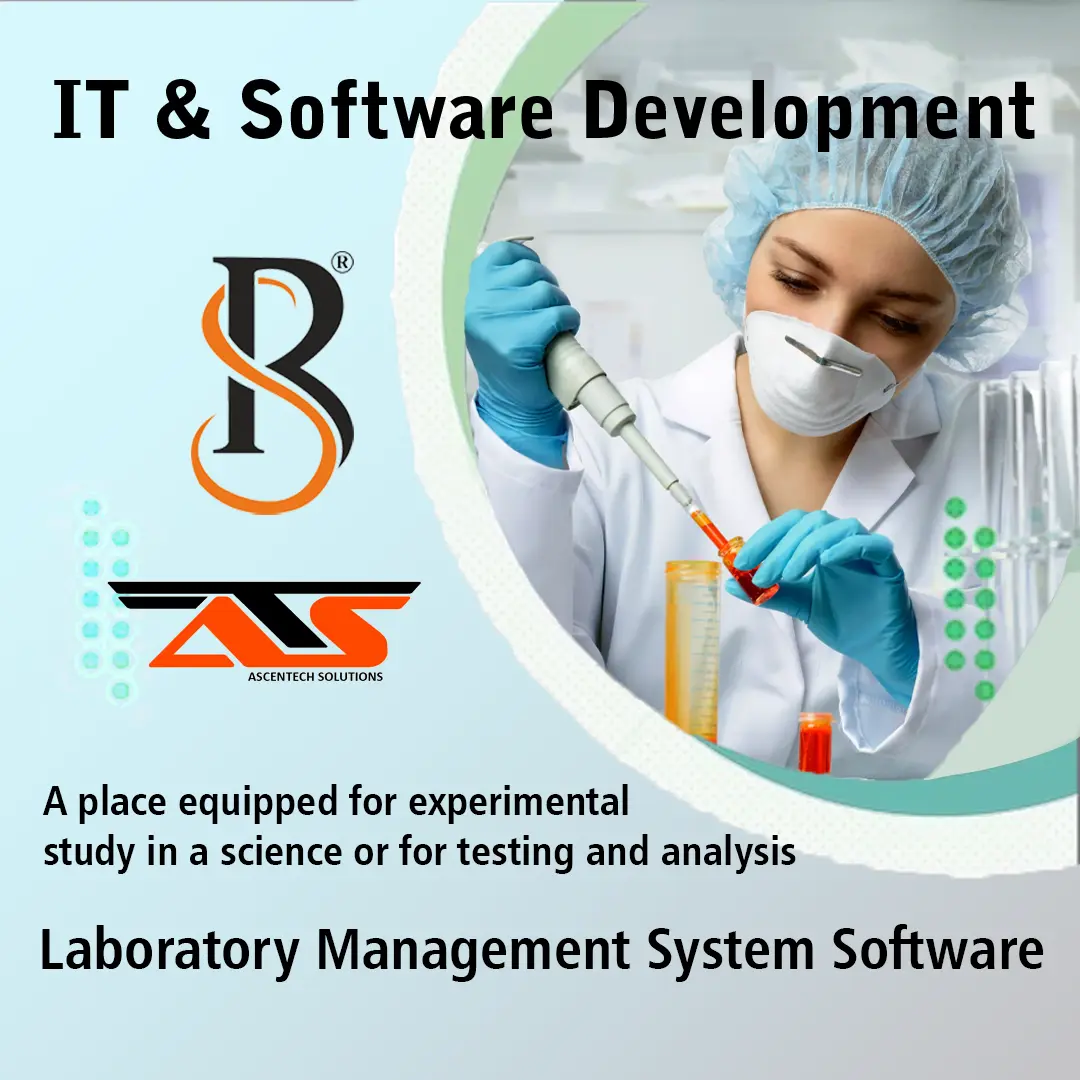 we have Patient Registration, Appointment System, Lab Report, Billing, Commission Management, Patient & Bill
Statistics. Here are some of the key features of our laboratory management system software:
we have Patient Registration, Appointment System, Lab Report, Billing, Commission Management, Patient & Bill
Statistics. Here are some of the key features of our laboratory management system software:
i. Sample Tracking: The software allows laboratories to track the status and location of samples from the time of collection to final reporting, including test results.
ii. Instrument Interfacing: This feature enables laboratories to interface their instruments with the software, which can automatically transfer data from the instruments to the software, reducing manual data entry and errors.
iii. Quality Control: The software allows laboratories to manage their quality control processes, including calibration and proficiency testing.
iv. Inventory Management: The software allows laboratories to track inventory levels, manage stock orders, and monitor expiration dates of reagents and supplies.
v. Reporting: The software can generate various reports, such as test volumes, turnaround times, and quality control metrics, which help laboratories track their performance and make informed business decisions.
Laboratory management system software can improve the efficiency and accuracy of laboratory operations, reduce errors and enhance patient safety. It can also help laboratories manage their inventory and quality control more effectively, reduce waste, and improve profitability. The software is widely used in medical laboratories, including clinical, pathology, microbiology, and genetics laboratories.
|
Clinic Management system Software
|
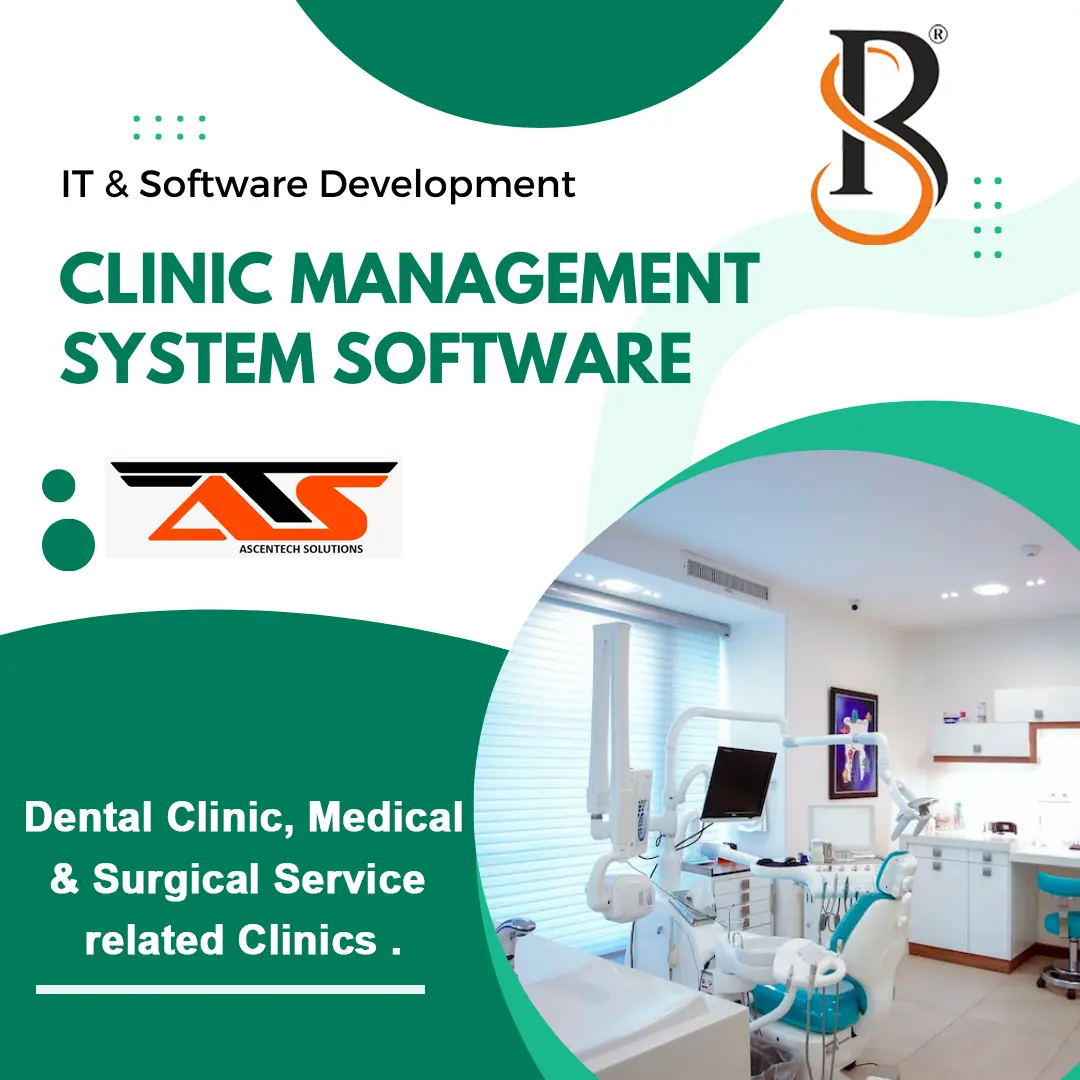
Polyclinic Management Software is a computer program designed to help polyclinics manage their operations more
efficiently. Our developed software typically includes features such as patient registration, appointment
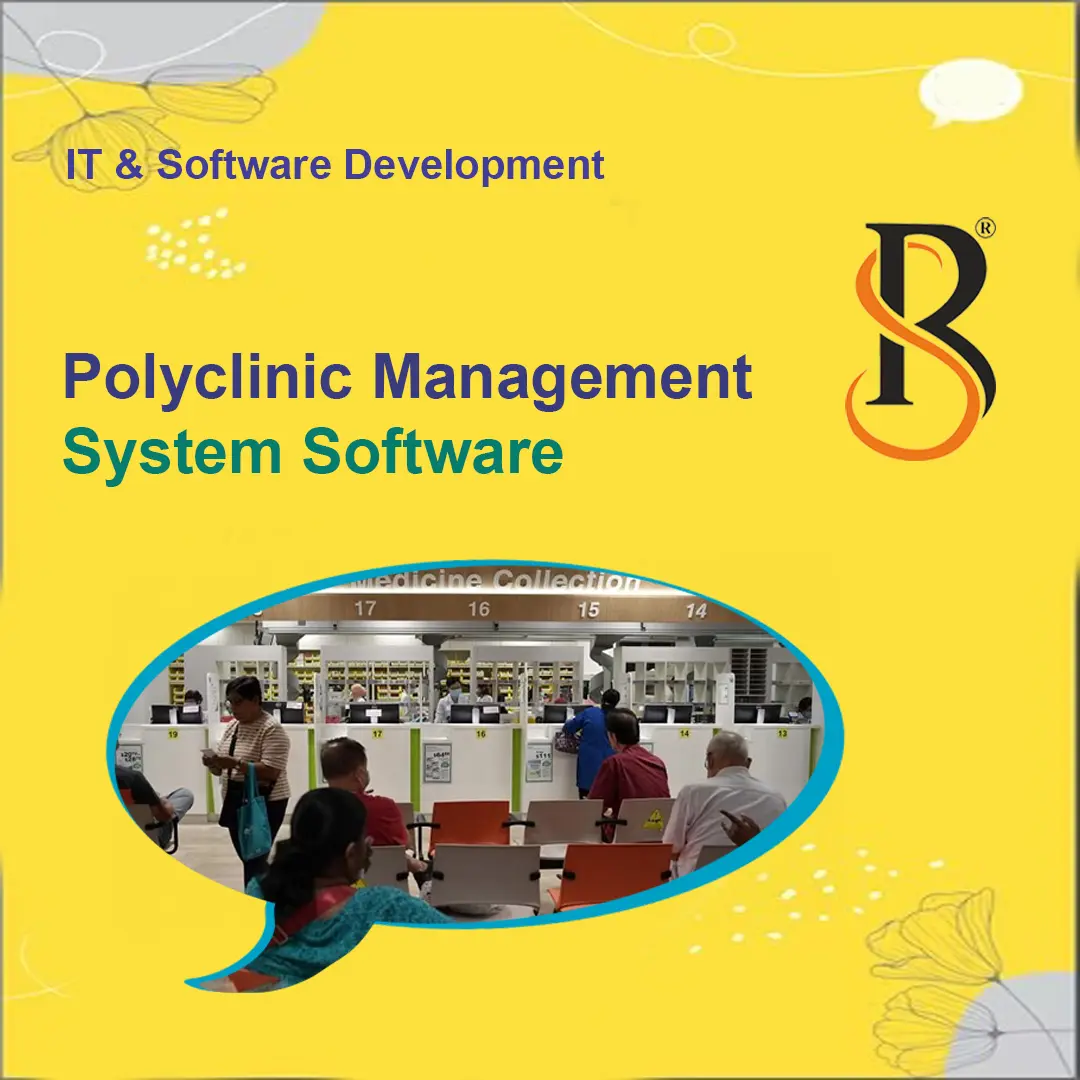 scheduling, medical records management, billing and invoicing, and reporting. Here are some of the key
features of our polyclinic management system software:
scheduling, medical records management, billing and invoicing, and reporting. Here are some of the key
features of our polyclinic management system software:
i. Patient Registration: The software allows polyclinics to register patients and collect their personal and medical details, including contact information, medical history, and insurance information.
ii. Appointment Scheduling: This feature enables patients to book appointments online or over the phone, and the software can help manage the appointment schedule for doctors and other staff.
iii. Medical Records Management: The software allows polyclinics to store and manage patient medical records, including diagnoses, treatments, and test results.
iv. Billing and Invoicing: The system can generate invoices and process payments, including online payments, for the services provided.
v. Reporting: The software can generate various reports, such as patient volumes, appointment cancellations, and revenue reports, which help polyclinics track their performance and make informed business decisions.
Polyclinic management system software can improve the efficiency and accuracy of clinic operations, reduce errors and enhance patient safety. It can also help clinics manage their finances more effectively, reduce paperwork, and improve profitability. The software is widely used in polyclinics and medical centers, including those that offer primary care, specialty care, and outpatient services.
We can provide all types of Diagnostic Management System Software for any Diagnostic Centres to help diagnostic
laboratories manage their operations more efficiently. The Diagnostic Management System Software typically
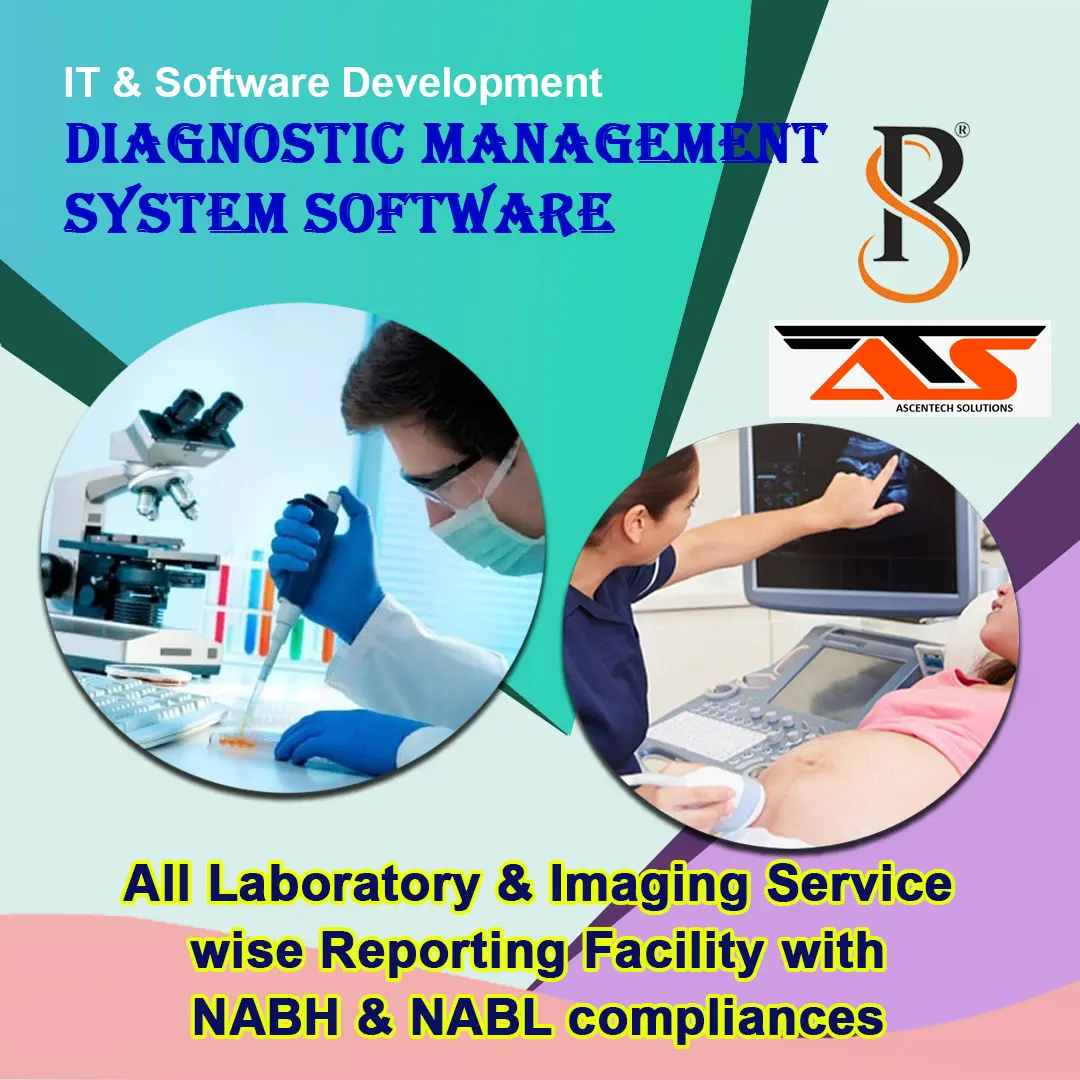 includes features such as Patient Registration, Lab Report, Imaging Report, Billing, Commission Management,
Patient & Bill Statistics and Inventory Management. Here are some of the key features of our diagnostic
management system software:
includes features such as Patient Registration, Lab Report, Imaging Report, Billing, Commission Management,
Patient & Bill Statistics and Inventory Management. Here are some of the key features of our diagnostic
management system software:
i. Patient Data Management: This feature allows diagnostic laboratories to store and manage patient information, including personal details, medical history, and test results.
ii. Test Ordering and Result Reporting: The software enables physicians to order tests, and the lab staff can enter test results and generate reports. The system can also alert physicians of critical results.
iii. Inventory Management: The software allows laboratories to track inventory levels, manage stock orders, and monitor expiration dates of reagents and supplies.
iv. Billing and Invoicing: The system can generate invoices and process payments, including online payments, for the services provided.
v. Reporting: The software can generate various reports, such as test volumes, turnaround times, and quality control metrics, which help laboratories track their performance and make informed business decisions.
vi. Commission Management: The system can automatically generate the monthly or periodically commission, which the Organization had already decided to give the concern persons.
Diagnostic management system software can improve the efficiency and accuracy of laboratory operations, reduce errors and enhance patient safety. It can also help laboratories manage their inventory more effectively, reduce waste, and improve profitability. The software is widely used in medical laboratories, including clinical, pathology, microbiology, and genetics laboratories.
Pharmacy management system software is a computer program designed by RSE to help pharmacies manage their
operations more efficiently. The software typically includes features such as inventory management, prescription
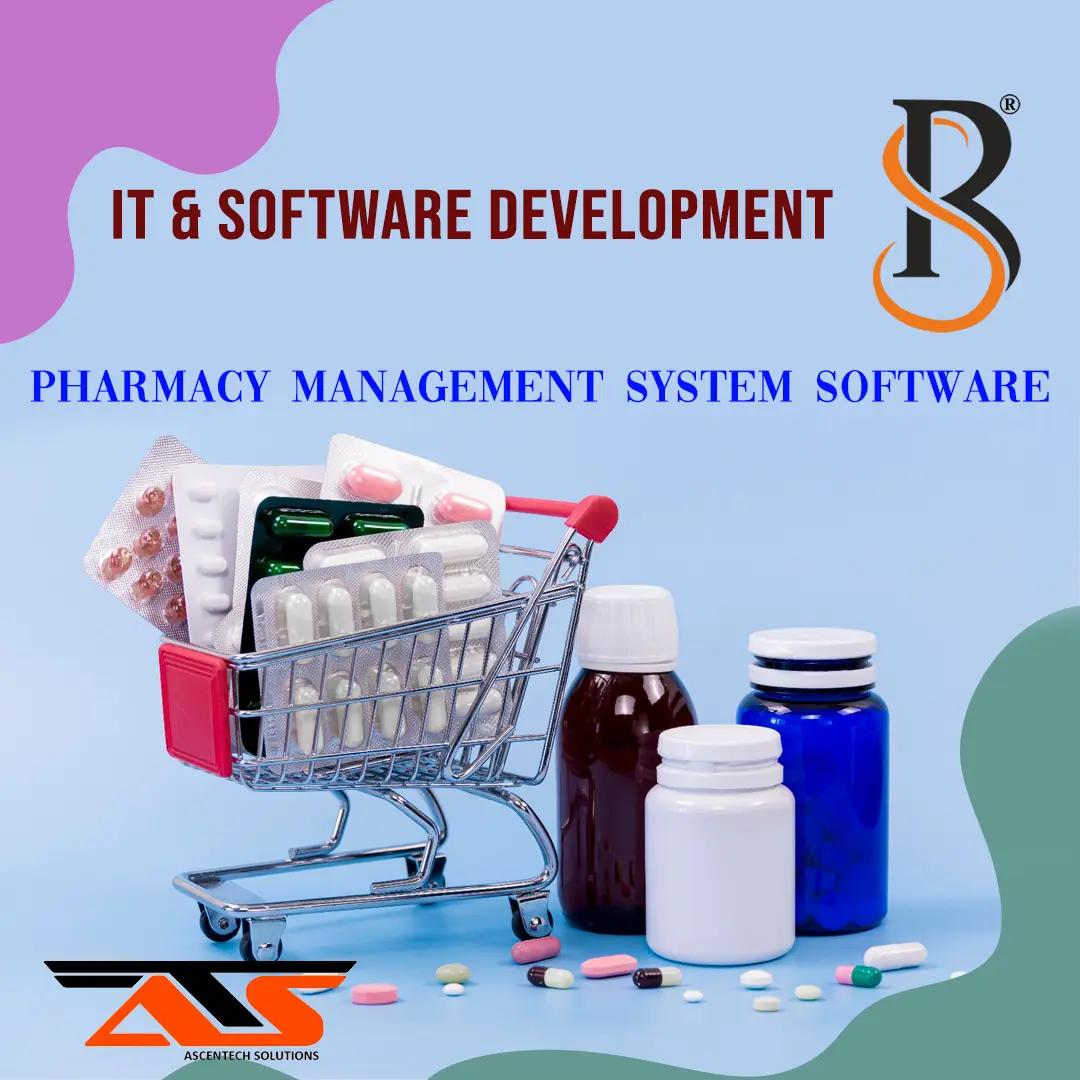 processing, patient data management, billing and invoicing, and reporting. Here are some of the key features
of our pharmacy management system software:
processing, patient data management, billing and invoicing, and reporting. Here are some of the key features
of our pharmacy management system software:
i. Inventory Management: The software allows pharmacies to track inventory levels, manage stock orders, and monitor expiration dates of medicines.
ii. Billing and Invoicing: The software can generate invoices and process payments, including online payments.
iii. Reporting: The system can generate various reports, such as inventory levels, sales reports, and patient history reports, which help pharmacies track their performance and make informed business decisions.
Our developed Pharmacy management system software can improve the efficiency and accuracy of pharmacy operations, reduce errors and enhance patient safety. It can also help pharmacies manage their inventory more effectively, reduce waste, and improve profitability. This software is widely used in retail pharmacies, hospital pharmacies, and other healthcare facilities.
Ophthalmology management system software is a digital solution that helps ophthalmologists manage patient data,
appointments, medical reports and billing in an efficient manner. With the help of our ophthalmology management
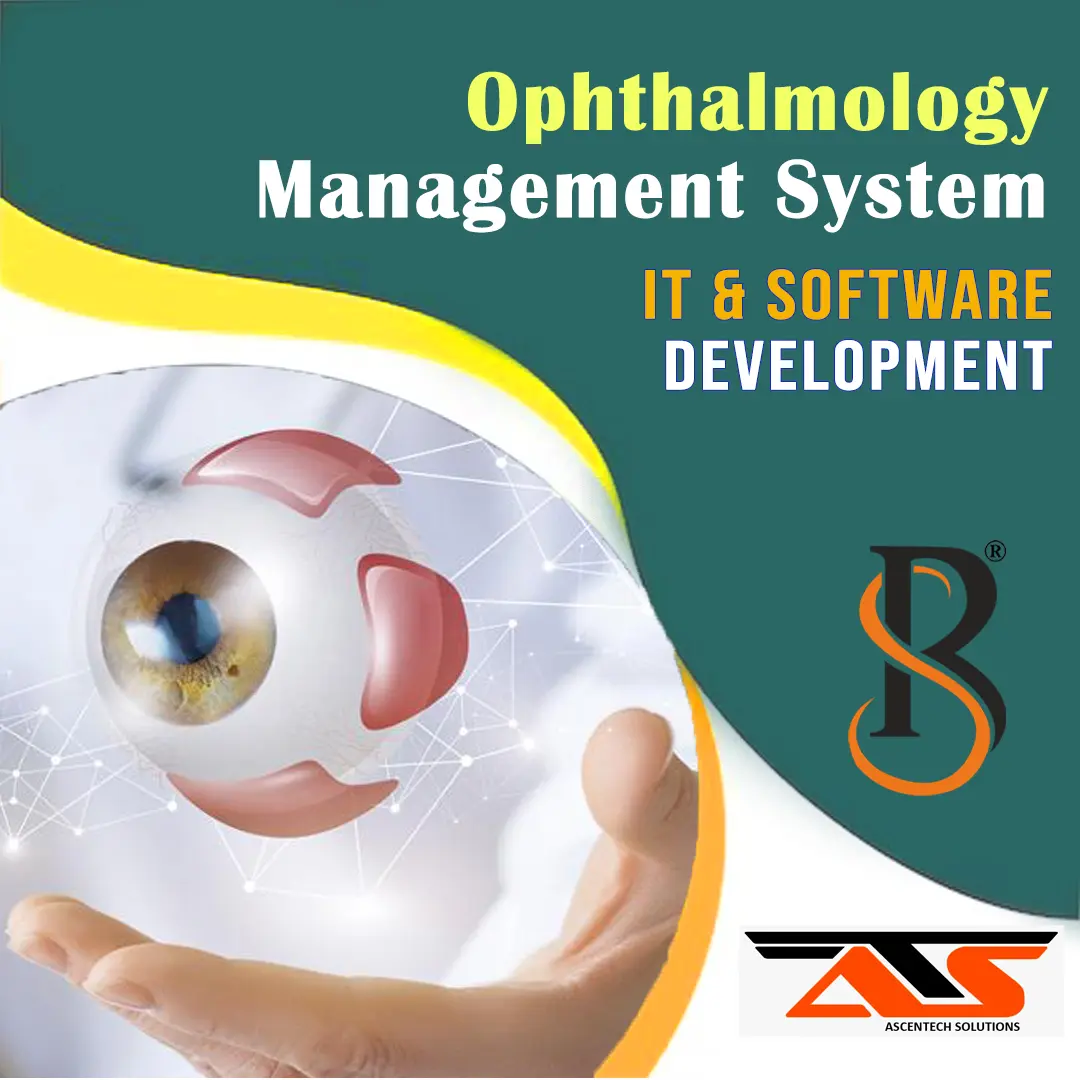 system software, healthcare providers can easily access and update patient records, keep track of appointments
and medications, generate reports, and streamline billing processes.
system software, healthcare providers can easily access and update patient records, keep track of appointments
and medications, generate reports, and streamline billing processes.
This software also helps improve the overall patient experience by reducing wait times and allowing for greater accuracy in diagnoses and treatment plans.
With our ophthalmology management system, healthcare providers can also save time and money by automating routine administrative tasks, reducing paperwork, enabling remote access to patient data, and accelerating the billing process. Moreover, ophthalmologists can use this software to improve the quality of care they offer by utilizing digital tools such as diagnostic imaging and electronic prescription management. Overall, an ophthalmology management system software offers a comprehensive solution that enhances the efficiency of healthcare delivery, improves patient outcomes and experience, as well as increases the productivity and profitability of ophthalmology practices.
Investing in an ophthalmology management system software can be a valuable asset to healthcare providers, allowing them to manage their practice with ease and providing patients with the best possible care. In addition, an ophthalmology management system software provides a secure and efficient way of storing sensitive patient information, in compliance with privacy laws and regulations.
|
Project Management System Software
|

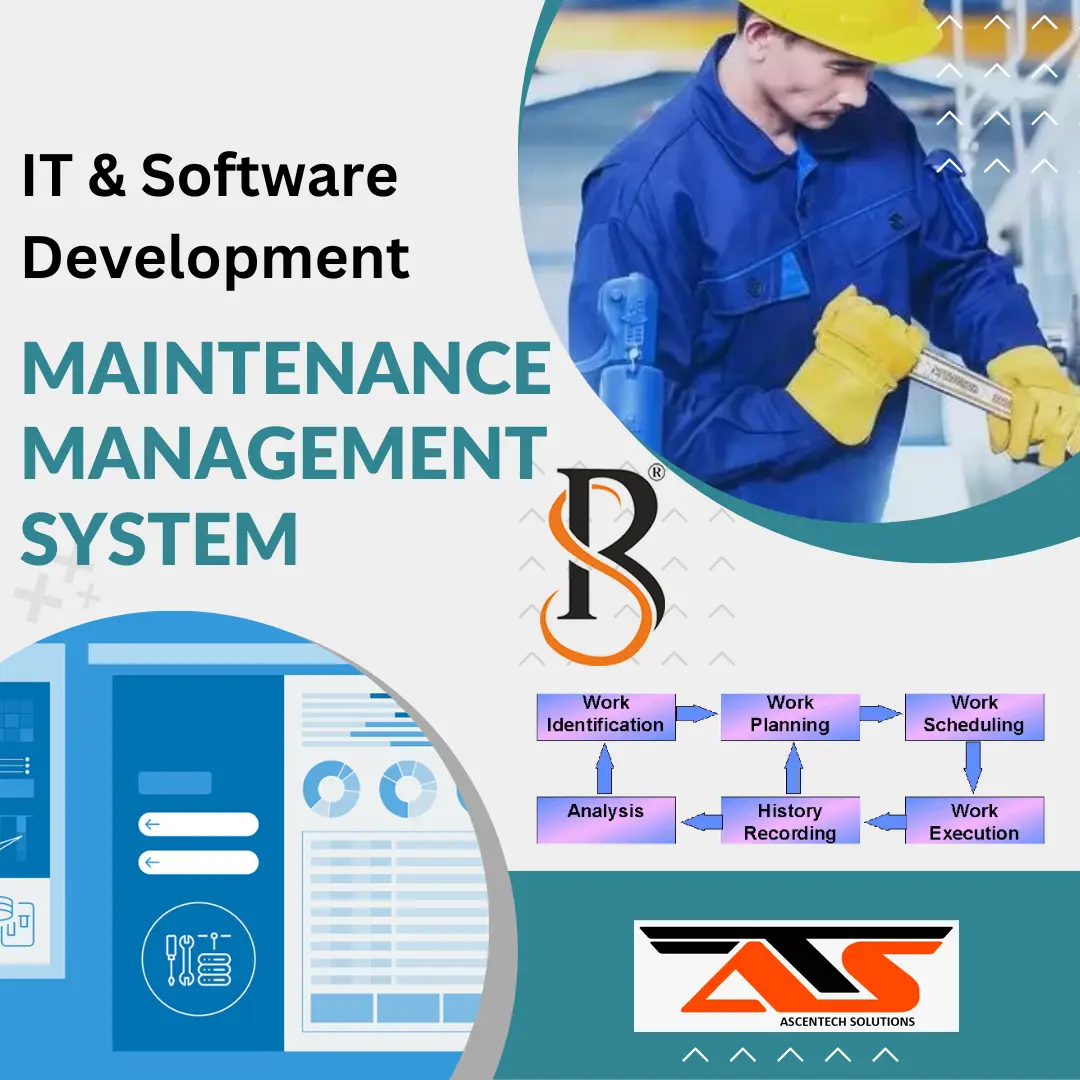 We have developed the Maintenance Management System (MMS) is a software application that helps organizations
manage and track maintenance activities for their equipment, machinery, and other assets. MMS typically includes
features such as work order management, asset tracking, preventive maintenance scheduling, inventory management,
and reporting.
We have developed the Maintenance Management System (MMS) is a software application that helps organizations
manage and track maintenance activities for their equipment, machinery, and other assets. MMS typically includes
features such as work order management, asset tracking, preventive maintenance scheduling, inventory management,
and reporting.
With an MMS, organizations can improve the efficiency of their maintenance operations by reducing downtime and increasing asset reliability.
Maintenance teams can use the system to schedule and track preventive maintenance tasks, track spare parts inventory, and monitor equipment performance to identify potential issues before they become major problems.
MMS can be used in a wide range of industries, including manufacturing, healthcare, transportation, and facilities management.
There are many different MMS software products available, ranging from standalone systems to integrated solutions that include maintenance management as part of a larger enterprise resource planning (ERP) system.
Our developed Hotel Management System Software is a comprehensive software solution designed to automate
various hotel operations and improve guest experience. It includes a range of features such as reservation
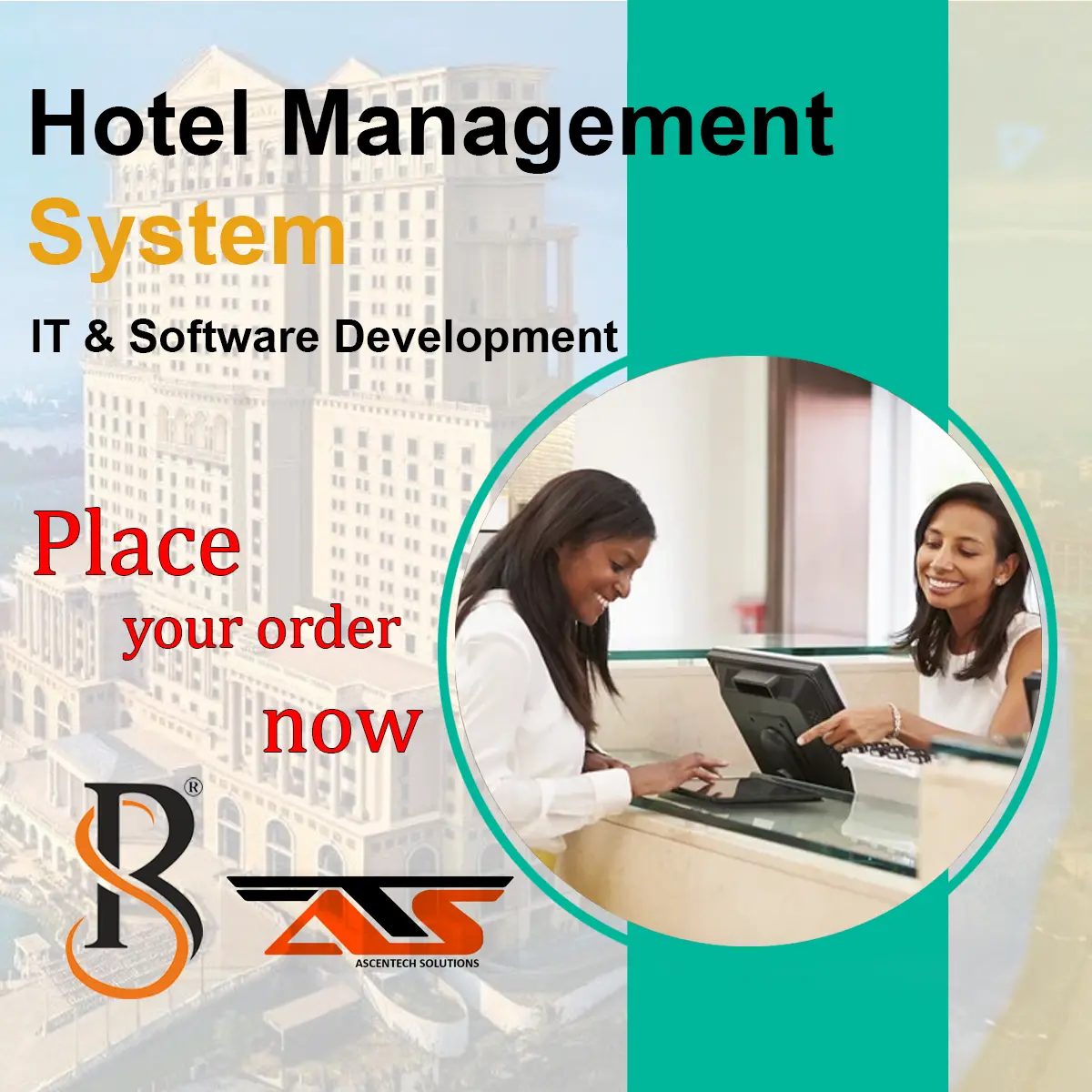 management, front desk management, housekeeping management, billing and invoicing, and inventory management.
Here are some of the key features and benefits of our Hotel Management System Software:
management, front desk management, housekeeping management, billing and invoicing, and inventory management.
Here are some of the key features and benefits of our Hotel Management System Software:
i. Reservation management: This feature allows guests to book rooms online, and helps hotel staff manage reservations, cancellations, and room availability in real-time.
ii. Front desk management: This feature streamlines check-in and check-out processes, allowing guests to complete formalities quickly and easily.
iii. Housekeeping management: This feature automates housekeeping tasks such as room cleaning, laundry management, and inventory management.
iv. Billing and invoicing: This feature simplifies billing and invoicing processes, allowing hotel staff to generate and send invoices quickly and accurately.
v. Inventory management: This feature tracks hotel inventory such as food, beverages, and supplies, and generates reports to help hotel staff make informed purchasing decisions.
vi. Guest experience management: This feature enables hotels to collect and analyse guest feedback, and use it to improve overall guest experience.
Overall, a hotel management system software can help hotels save time and money, reduce errors, improve operational efficiency, and enhance guest experience. It is a must-have tool for any hotel looking to stay competitive in today's fast-paced hospitality industry.
Restaurant management system software is a comprehensive software solution designed to automate various restaurant
operations and improve the overall efficiency and profitability of the business. Our developed software includes
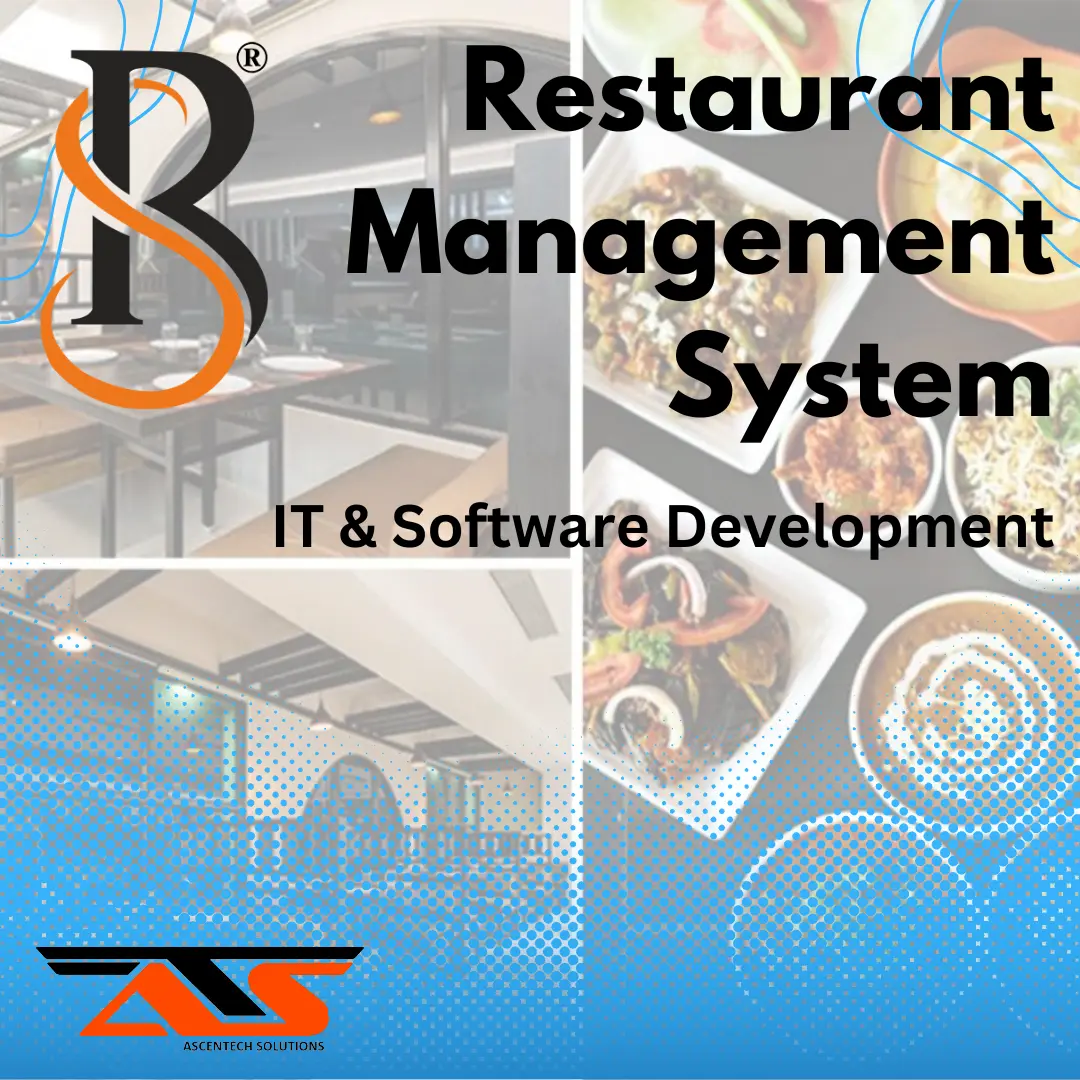 features such as point-of-sale (POS) management, inventory management, menu management, table management, and
reporting and analytics.
features such as point-of-sale (POS) management, inventory management, menu management, table management, and
reporting and analytics.
Here are some of the key features and benefits of our restaurant management system software:
i. Point-of-sale (POS) management: This feature allows restaurant staff to take orders, process payments, and print receipts quickly and easily. It also allows for easy menu customization and modification.
ii. Inventory management: This feature enables restaurants to track inventory levels in real-time, manage stock levels, and generate alerts when stock levels are low.
iii. Menu management: This feature enables restaurants to easily create and modify menus, update prices and specials, and manage ingredients and recipes.
iv. Table management: This feature allows restaurants to manage table reservations, assign tables to customers, and track table turnover times.
v. Reporting and analytics: This feature generates reports and analytics to help restaurants make informed decisions about their operations. This can include reports on sales, inventory, labor costs, and customer trends.
Overall, a restaurant management system software can help restaurants save time and money, reduce errors, improve operational efficiency, and enhance the overall customer experience. It is an essential tool for any restaurant looking to stay competitive in today's fast-paced food service industry.
An accounting management system (AMS) is a software application used by businesses to manage their financial
transactions and records. It can be used to record and track all financial transactions, including sales,
 purchases, payroll, and other expenses. The main purpose of our developed AMS is to provide accurate and
up-to-date financial information to business owners and managers so they can make informed decisions about
their business. Some common features of our AMS include:
purchases, payroll, and other expenses. The main purpose of our developed AMS is to provide accurate and
up-to-date financial information to business owners and managers so they can make informed decisions about
their business. Some common features of our AMS include:
i. General ledger: A ledger is a book or electronic record that lists all of a company's financial transactions. An AMS will have a general ledger that records all transactions in the company's accounts, including income, expenses, assets, and liabilities.
ii. Accounts payable: An AMS will have a module for accounts payable, which tracks money that the company owes to vendors or suppliers.
iii. Accounts receivable: An AMS will also have a module for accounts receivable, which tracks money that the company is owed by customers.
iv. Inventory management: Some AMSs may include inventory management features, which help businesses track their inventory levels and make sure they always have the right amount of stock on hand.
v. Payroll management: An AMS may also have a module for payroll management, which helps businesses calculate and manage employee salaries, benefits, and taxes.
vi. Reporting: An AMS will generate financial reports, including balance sheets, income statements, and cash flow statements, which provide an overview of a company's financial health and performance.
Overall, an AMS can help businesses improve their financial management, streamline their processes, and make better decisions based on accurate and up-to-date financial data.
An Inventory and Billing Management System is a software application used by businesses to manage their inventory
levels and billing processes. It can be used to track inventory levels, reorder products, when necessary,
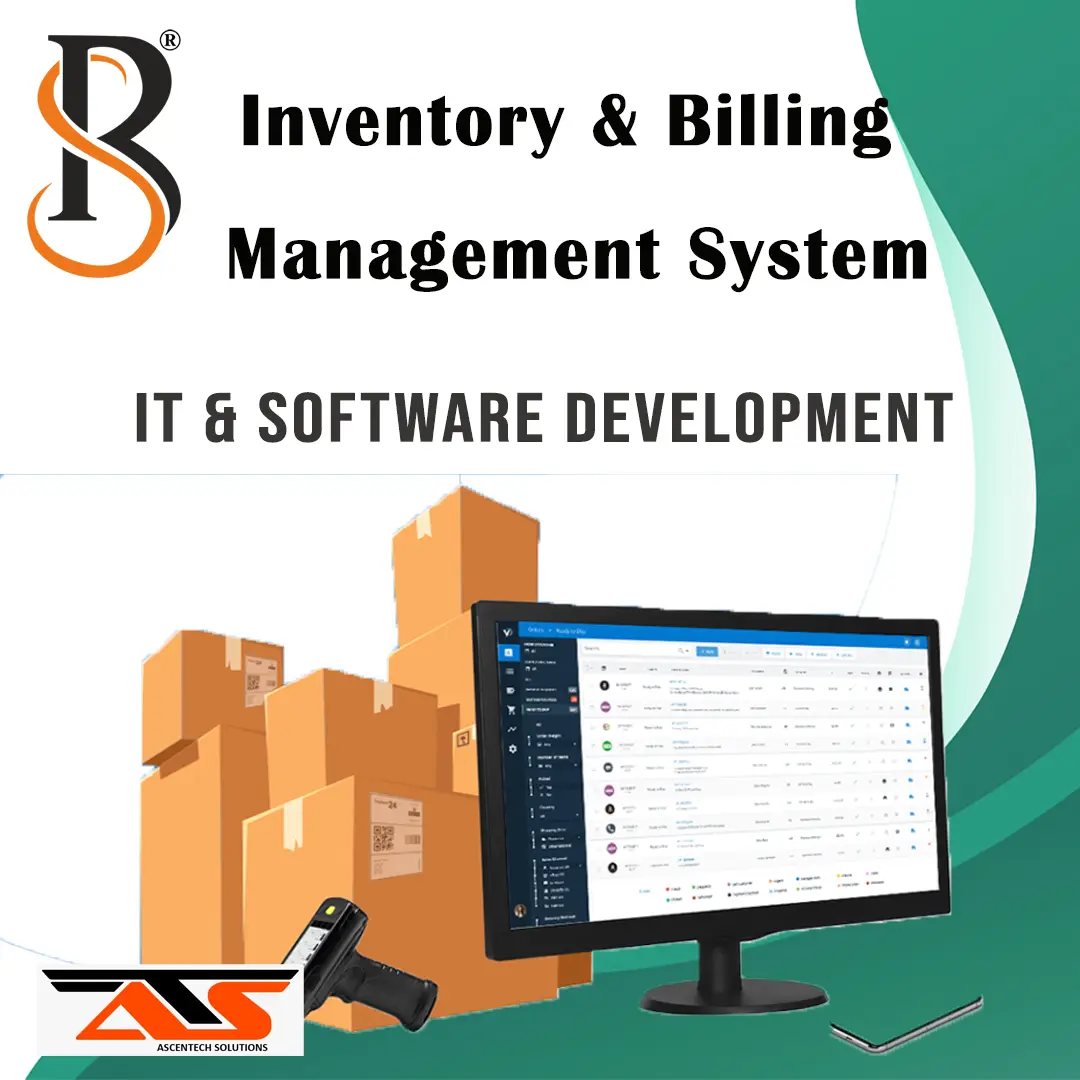 generate invoices, and process payments. Some common features of our Inventory and Billing Management System
include:
generate invoices, and process payments. Some common features of our Inventory and Billing Management System
include:
i. Inventory management: An Inventory and Billing Management System will have features to manage inventory levels, including tracking stock levels, setting reorder points, and generating reports to analyze inventory data.
ii. Billing management: An Inventory and Billing Management System will also have features to manage billing processes, including generating invoices, tracking payments, and managing customer accounts.
iii. Sales order management: An Inventory and Billing Management System may have a sales order management module, which helps businesses track sales orders, manage backorders, and generate reports to analyze sales data.
iv. Purchase order management: An Inventory and Billing Management System may also have a purchase order management module, which helps businesses track purchase orders, manage vendor accounts, and generate reports to analyze purchasing data.
v. Barcode scanning: Some Inventory and Billing Management Systems may have barcode scanning capabilities, which help businesses manage inventory levels and track sales data more efficiently.
vi. Reporting: An Inventory and Billing Management System will generate reports to help businesses analyze inventory and billing data, including inventory levels, sales data, and customer payment history.
Overall, our Inventory and Billing Management System can help businesses manage their inventory levels, track sales and purchase orders, and streamline their billing processes, leading to more efficient operations and better financial management.
